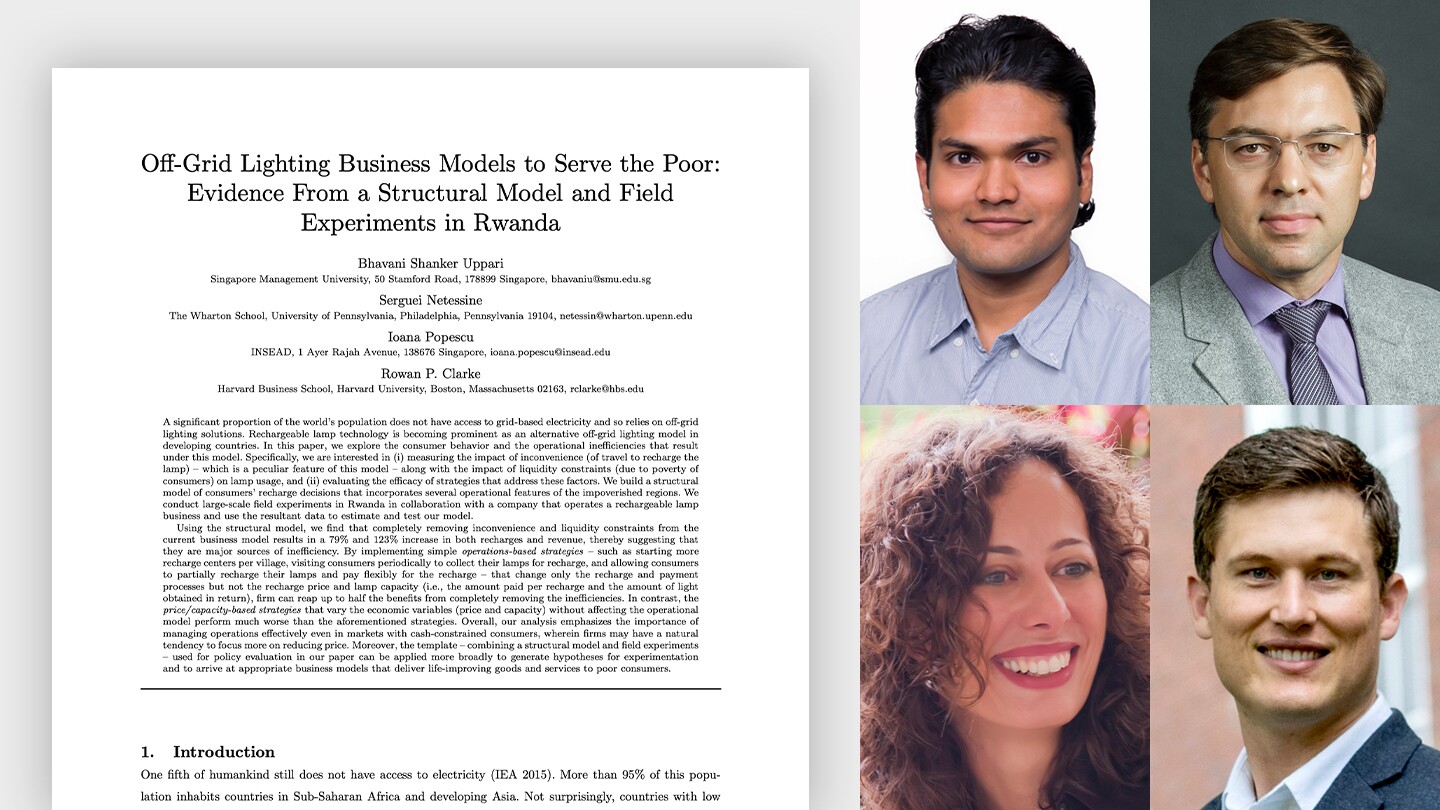Serguei Netessine, an Amazon Scholar who is also senior vice dean for Innovation and Global Initiatives and professor at the Operations, Information and Decisions Department at the University of Pennsylvania’s Wharton School, and his co-authors recently won the INFORMS Public Sector Operations Research (PSOR) Best Paper Award.
Netessine, along with Bhavani Shanker Uppari, assistant professor of operations management at Singapore Management University; Ioana Popescu, professor of decision sciences at INSEAD; and Rowan Clarke, a PhD candidate at Harvard Business School, won the award for their paper, “Off-Grid Lighting Business Models to Serve the Poor: Evidence From a Structural Model and Field Experiments in Rwanda.”
The best-paper award “recognizes research judged to be of the best quality in all of the disciplines and application areas represented within PSOR.”
“We were quite surprised to receive the award since this year competition attracted numerous papers and three other finalist submissions were all excellent, covering such important and timely topics as optimizing COVID screening at the border, unmasking human trafficking in commercial sex supply chains, and making better predictions for COVID vaccine allocation,” Netessine said. “It’s a great honor to win in such a competitive year.”
In their paper, Netessine and colleagues examined the usage of off-grid lighting solutions for people in poor countries. The International Energy Agency estimates one-tenth of the world’s population lacks access to energy, and the vast majority of that population is located in sub-Saharan Africa and developing parts of Asia.
As the paper notes, “Grid-based models of electricity supply have been unsuccessful in these countries because they require substantial capital investment, and in many cases it may neither be technically feasible nor economical to extend grid electricity to these regions.”
The potential for off-grid energy solutions in those areas is significant, yet their usage remains low. For their study, the authors focused on the utilization of rechargeable lamps in Rwanda which are recharged for a low price at a central location using a stationary bicycle, a business model pioneered by NURU Energy.
More than 60% of Rwandans lack access to electricity and only 30% of Rwandans can access the country’s electricity grid, a problem that is exacerbated by the hilly terrain in the landlocked country. Similar to other areas of the world, many Rwandans rely on flame-based lighting solutions such as kerosene lamps and paraffin candles. Rechargeable lamps are more efficient, safer, and more affordable than those options, yet their adoption remains relatively low.
It is common to presume that consumers at the bottom of the pyramid only care about price of the product ... our paper shows that, by far, the largest impact comes from logistics!
Via a series of field experiments, paired with a predictive model that utilized statistics, structural econometrics, and machine learning, the paper demonstrated that there are two significant hurdles preventing the uptake of these lamps: convenience and liquidity constraints.
The authors were able to demonstrate that making it easier to recharge lamps (via more conveniently located or mobile recharge stations) and providing flexibility in the payments for those recharges (via prepaid or micropayment recharge systems) had a much more significant impact on their usage than lowering the price point of the lamp itself.
“It is common to presume that consumers at the bottom of the pyramid only care about price of the product, which needs to be low, low, low,” Netessine noted. “Our paper shows that, by far, the largest impact comes from logistics! Recharging the lights is time-consuming and anything that can be done to alleviate this inconvenience, e.g., door-to-door lamp collection, would be very impactful. Otherwise consumers might default to a more convenient, but more expensive, solution such as burning harmful kerosene.”


















